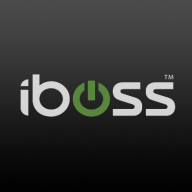


Skyhigh Security and Microsoft Defender for Cloud Apps are leading contenders in the cloud application security market. Skyhigh Security has an edge in shadow IT capabilities and detailed cloud risk assessments, while Microsoft Defender excels with its integration within the Microsoft ecosystem, offering comprehensive visibility and security features.
Features: Skyhigh Security provides advanced shadow IT detection through proxy log analysis, comprehensive risk assessments for cloud services, and data loss prevention enforcement. Its Cloud Risk Registry and user analytics are crucial for categorizing cloud applications based on risk. Microsoft Defender for Cloud Apps delivers seamless integration with Microsoft products, robust monitoring of sensitive data and user activities, and real-time alerts for enhanced protection.
Room for Improvement: Skyhigh Security needs to improve console performance, reporting speeds, and user interface functionality. It requires better integration support for unsanctioned applications. Microsoft Defender for Cloud Apps should enhance its reporting features, user-friendly customization options, and reduce response times for threat detection. It also needs better integration with non-Microsoft solutions and improvements in handling false positives.
Ease of Deployment and Customer Service: Skyhigh Security offers flexible deployment options, including hybrid, on-premises, and public cloud, though its complex setup can impact user experience. It is generally well-regarded for customer service but may have inconsistent technical support. Microsoft Defender for Cloud Apps boasts wide deployment options, particularly suited for Azure environments, and receives positive feedback for responsive and efficient customer service, especially within Microsoft products.
Pricing and ROI: Skyhigh Security's pricing model requires separate licenses for different services, catering to those focused on shadow IT discovery, and is valued for its detailed assessments despite being costly. Microsoft Defender for Cloud Apps is often bundled with Microsoft 365 suites, presenting a cost-effective option within the Microsoft ecosystem. Though its pricing is higher, seamless integration within the Microsoft suite often justifies the cost for businesses.
| Product | Market Share (%) |
|---|---|
| Microsoft Defender for Cloud Apps | 6.5% |
| iboss | 2.5% |
| Skyhigh Security | 3.3% |
| Other | 87.7% |
| Company Size | Count |
|---|---|
| Small Business | 6 |
| Midsize Enterprise | 6 |
| Large Enterprise | 5 |
| Company Size | Count |
|---|---|
| Small Business | 15 |
| Midsize Enterprise | 10 |
| Large Enterprise | 19 |
| Company Size | Count |
|---|---|
| Small Business | 30 |
| Midsize Enterprise | 4 |
| Large Enterprise | 37 |
Iboss offers a comprehensive cloud-based security platform valued for its scalability and autonomous features, ensuring robust security with easy deployment and management capabilities.
Renowned for its robust security architecture, Iboss integrates seamlessly within diverse networks, delivering efficient granular filtering and advanced content categorization. Its single pane of glass console provides ease of management, allowing rapid scalability suitable for rapidly deploying environments. Operates in BYOD setups due to inline filtering without device installation. Integration with cloud-based applications enhances user control, and features like SASE, SSL inspection, and ChatGPT risk protection stand as highlights. Despite its strengths, users have pointed out areas for enhancement like direct navigation in reports, SSL decryption, and better cloud integration while having room to improve data loss prevention.
What are the most important features of Iboss?The usage of Iboss spans educational institutions, specifically K-12, to enforce internet policies, protect data, and support remote work environments. It provides web filtering and security frameworks to ensure safe browsing. Its platform-as-a-service model offers flexibility for both cloud-based and on-premises requirements, integrating seamlessly to deliver enhanced security features suitable for various deployment needs including zero trust, CASB, and network security for work-from-home setups.
Microsoft Defender for Cloud Apps is a comprehensive security solution that provides protection for cloud-based applications and services. It offers real-time threat detection and response, as well as advanced analytics and reporting capabilities. With Defender for Cloud Apps, organizations can ensure the security of their cloud environments and safeguard against cyber threats. Whether you're running SaaS applications, IaaS workloads, or PaaS services, Microsoft Defender for Cloud Apps can help you secure your cloud environment and protect your business from cyber threats.
Reviews from Real Users
Ram-Krish, Cloud Security & Governance at a financial services firm, says that Microsoft Defender for Cloud Apps "Integrates well and helps us in protecting sensitive information, but takes time to scan and apply the policies and cannot detect everything we need".
PeerSpot user, Senior Cloud & Security Consultant at a tech services, writes that Microsoft Defender for Cloud Apps "Great for monitoring user activity and protecting data while integrating well with other applications".
Simon Burgess,Infrastructure Engineer at SBITSC, states that Microsoft Defender for Cloud Apps is "A fluid, intelligent product for great visibility, centralized management, and increased uptime".
Skyhigh Security protects organizations with cloud-based Zero Trust security solutions that are both data-aware and simple to use. Skyhigh’s Security Service Edge portfolio goes beyond data access and focuses on data use, allowing organizations to collaborate from any device and from anywhere without sacrificing security, while providing the visibility and control required to monitor and mitigate security risks.
The Skyhigh Security Service Edge portfolio includes Skyhigh Secure Web Gateway, Skyhigh Cloud Access Security Broker, Skyhigh Private Access, and Skyhigh Cloud Native Application Protection Platform. All solutions form a fully converged, consolidated platform, and are managed from the same single console.
Skyhigh Security Benefits
Skyhigh Security Features
We monitor all Cloud Access Security Brokers (CASB) reviews to prevent fraudulent reviews and keep review quality high. We do not post reviews by company employees or direct competitors. We validate each review for authenticity via cross-reference with LinkedIn, and personal follow-up with the reviewer when necessary.